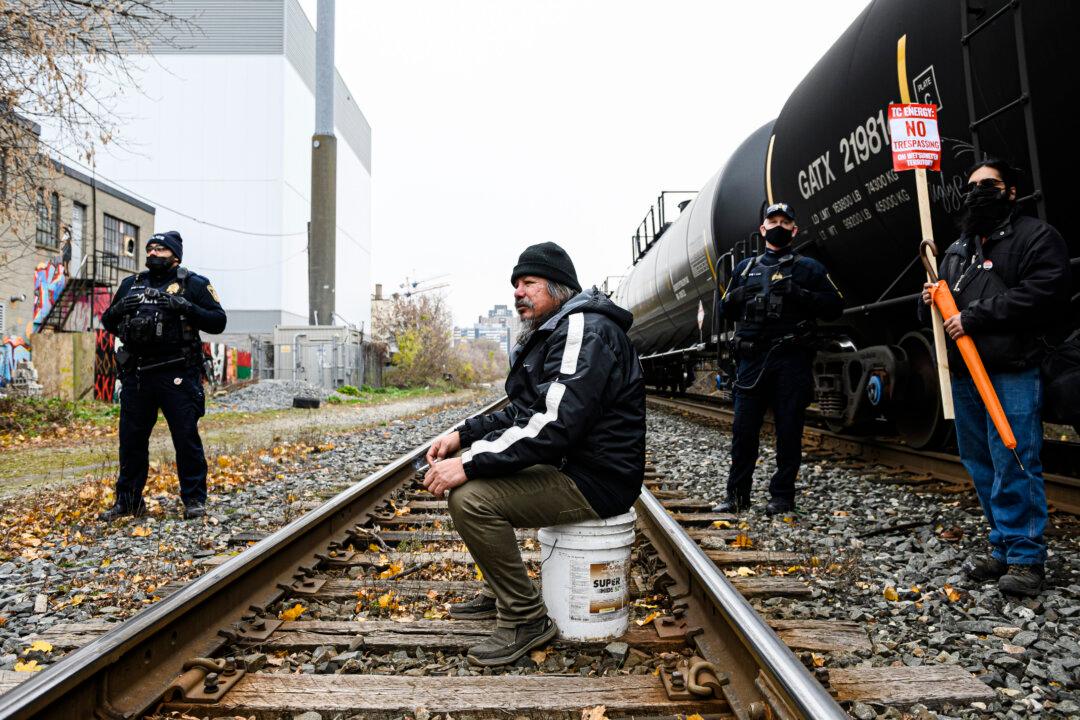The conflict in northern B.C. over the Coastal GasLink pipeline caught greater international attention on Nov. 22 when Hollywood star Leonardo DiCaprio chimed in, posting on Twitter a video of RCMP officers confronting indigenous activists opposed to the pipeline.
BC Coastal GasLink Pipeline Conflict Gets International Attention While Some Warn of One-Sided Information

A man blocks a rail line in support of Wet'suwet'en protesters who were arrested by the RCMP in northern B.C., in Toronto on Nov. 21, 2021. The Canadian Press/Christopher Katsarov
|Updated:




